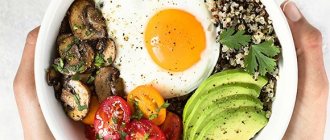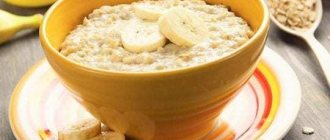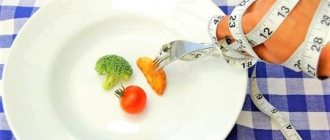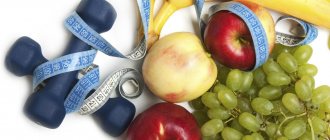Both scientists and doctors constantly tell us that breakfast is the most important meal of the day. Its absence can lead to weight gain and gastrointestinal problems. I always believe in such statements, although I never liked to eat heavily in the morning. Now more and more people believe that breakfast does not affect your well-being, figure and health. It is important to eat based on the intervals at which the body works. I became interested in these studies and decided to conduct an experiment. I gave up breakfast for three weeks. At first I thought it would make me feel worse, but in fact it has completely changed the way I eat.
Eat only twice a day
I have never considered myself one of those people who can easily lose weight with a strict diet. Avoiding certain foods only increased my desire to eat them. Therefore, sooner or later I broke down and started eating junk food, gaining my kilograms back. Counting calories didn't help either because I don't have time to weigh all my food throughout the day. Then I decided to give up breakfast and switch to an interval schedule. Its supporters believe that this approach helps you lose weight. In addition, people become more energetic.
Aries and Cancer have the least time: how long does it take for zodiac signs to fall in love
Instead of red drops, transparent ones: Apple announced that it will change popular emoji
Austrian scientists have made an important discovery related to immunity to COVID-19
Then I decided to create a new daily routine for myself. I skipped breakfast, so I only ate my first meal at noon. I planned to have dinner no later than 20:00. The daily routine did not include a third meal, but this does not mean that I starved myself. From lunch to dinner, I allowed myself to snack on vegetables, fruits or something sweet.
What happens if you only eat breakfast for several days in a row?
The nutritionist believes that it is impossible to stay solely on breakfast for several days. The body will not receive enough nutrients (proteins, fats and carbohydrates).
If you only eat breakfast for several days in a row, then:
- you will feel hungry all day;
- this will become a strong stress for the body, and when you start eating normally, it will leave calories “in reserve”;
- hormonal imbalance may occur;
- You can get gastritis or aggravate the situation with an existing disease.
One burger - an hour on the treadmill: how much of your time is fast food “worth”?
You shouldn't take risks and experiment on yourself. When we give the body everything it needs, we get the corresponding result. We have a lot of strength and energy, a good mood and enough motivation to play sports, work actively and strive for even greater goals.
What happens if you give up breakfast for three weeks?
Today, more and more studies are emerging that prove the benefits of interval nutrition and skipping breakfast. Before changing my habits, I asked various trainers and people in the fitness industry for their opinions. They recommended that I not skip breakfast before training. It is not necessary to eat heavy protein foods that are difficult for the body to digest. They can be replaced with something lighter, containing a lot of carbohydrates. However, I still decided to continue my experiment.
From the very beginning, I thought that skipping breakfast would reduce the amount of food I consumed throughout the day. Usually in the morning I ate a lot of heavy food, but by lunchtime I felt hungry. So I decided to see if I could eat less if I gave up breakfast.
They have a “light hand”: the four zodiac signs under which such people are born
Microsoft Office will add a text prediction option to Word starting in March
Charm and seduce: how men of different zodiac signs flirt
Why is breakfast so important?
Breakfast is the most important meal. Eating food in the first two hours after waking up plays several important functions:
- restores glycogen reserves in the body;
- activates metabolism;
- provides energy for the whole day;
- after an overnight fast, it supplies “fuel” to the muscles and brain.
Experts have calculated that in order for the body to experience all the benefits of breakfast, the first meal should take place within the first 2 hours after waking up. In addition, it is important that the calorie content of breakfast ranges from 20% to 35% of the daily diet.
It's hard to find a nutritionist who will tell you that skipping breakfast is good. However, as Americans have calculated, there are at least 31 million people among their fellow citizens who regularly skip their morning meal. The situation is similar in most other developed countries of the world. Researchers suggest that about a quarter of the world's population skips breakfast at least once a week, and 13% of them never eat breakfast at all. As for women, about 30% of them say that they don’t eat anything in the morning because they simply don’t have time for it, and another 14% believe that not eating in the morning allows them to maintain their figure. If you are also one of the opponents of breakfast and do not plan to change your nutrition program, then you can be sure that your body will not experience at least six benefits.
Weight under control
Data from various scientific studies indicate that people who regularly eat breakfast are 4 times less likely to suffer from obesity. Researchers have found several facts that explain this phenomenon.
One theory is that eating a healthy breakfast can help reduce your appetite throughout the next day. Many people believe that by skipping the morning meal, they can reduce the total calorie content of their daily diet. But research shows that this strategy doesn't work. As a rule, breakfast opponents come to lunch with strong hunger and usually, without noticing it, eat more high-calorie foods in large portions. As a result, it turns out that even without breakfast, the daily calorie content of the diet goes far beyond the norm. Researchers at the University of Missouri found that after eating a protein-rich breakfast, people eat less throughout the day, and their lunches are lower in calories than those who skip breakfast. Israeli scientists have discovered that if you eat half of your daily calories for breakfast, then within 3 months of eating this way you can get rid of 8-9 kilograms of excess weight without much difficulty.
There is another theory about the relationship between eating breakfast and maintaining a healthy weight. Experts have concluded that in most cases, people who eat breakfast generally lead a healthy lifestyle. They usually include healthy foods in their diet that do not contain “empty” calories, try to eat a balanced diet, and at least occasionally exercise. During the experiment, American scientists observed overweight people who agreed to slightly reconsider their usual diet and physical activity. Participants in the experiment began to eat breakfast regularly and exercise moderately. The only condition put forward by him is to eat healthy breakfasts containing proteins and whole grains. To the great surprise of the participants in the experiment, within a year, 80% of them lost almost 15 kilograms.
Always energetic
Our bodies perceive food as fuel. In order for the body to function adequately, it needs energy, that is, food. Without breakfast, the body finds itself in a very unenviable situation. For quite a long time (from dinner to lunch) he has to work without “fuel”, which affects his overall activity and productivity. Therefore, in order to restore energy and strength, the body must receive a portion of high-calorie food in the morning.
Reduces the risk of developing diabetes
Globally, diabetes is one of the most common diseases. Endocrinologists name different causes of this disease. One of them is eating disorders. In particular, scientists found that irregular consumption of breakfast increases the risk of developing type 2 diabetes by several times (from 2 to 21%). Moreover, women are more susceptible to this danger (possibly due to the abuse of “starvation” diets).
Benefits for the Heart
Doctors say the cause of every third death is cardiovascular disease. Sad statistics, isn't it? Moreover, most cardiac problems can be prevented by following a healthy lifestyle. And recently, researchers found that men ages 45 to 82 who ate a healthy breakfast daily were about 27% less likely to develop heart disease, especially coronary artery disease.
Improves memory
Did you know that eating breakfast can significantly improve your memory? Experts examined the results of 22 studies on breakfast and cognitive function. It turned out that children who eat cereals and proteins in the morning demonstrate better memory and good learning ability. Why is this happening? A morning meal allows you to saturate your body with carbohydrates, and they are indispensable for the proper functioning of the brain. In addition, we must not forget that before breakfast, the body, including the brain, did not receive “fuel” for 8-12 hours. And without fuel, any mechanism refuses to work.
Boosts immunity
Dutch scientists have discovered a relationship between breakfast and the state of the immune system. It turned out that a hearty breakfast stimulates the body's production of interferon gamma, a natural antivirus responsible for immune function.
Researchers from Cardiff University (UK) also claim that people who skip breakfast are more susceptible to infectious diseases.
Strengthens bones
Regular morning meals can be good for our bones. Japanese scientists think so. They studied the state of bone tissue in people with different attitudes to breakfast. As it turned out, people whose day starts with a healthy meal have noticeably higher bone density than those who don’t eat breakfast.
More water, less coffee
Usually in the morning I eat boiled eggs, porridge or toast with avocado. But I also drink a lot of coffee to perk me up a little. However, I also had to give it up: you can’t drink it on an empty stomach. So now I started drinking more water in the morning. At first it was hard for me to give up coffee; I constantly felt sleepy. The first days I still drank 1-2 cups of the drink, consoled myself with the fact that it helps suppress my appetite.
I didn’t like such concessions, so immediately after waking up I started drinking a glass of water. Then I gradually increased the amount of fluid I consumed. And after a few days I was able to give up coffee. I just lost the desire to drink it in the morning. If before I consumed about 2 liters of water a day, then after giving up breakfast this amount increased to 4 liters.
Interesting facts about breakfast
Content:
- Interesting facts about breakfast
- Why is breakfast so important?
- What does a proper breakfast look like?
- How to choose breakfast foods
- How to train yourself to eat breakfast
- If you still don't want to eat
Many historians suggest that until the 15th century people did not eat breakfast: in ancient times it was customary to eat once a day, but very heavily. The meal in those days was reminiscent of a modern lunch. It is difficult to say when and in what connection the tradition of having breakfast appeared, but it is known for sure that at first the courts consumed bread, butter and cheese in the morning. Over time, the appetites of the nobles grew and after sleep, many began to eat fish or chicken dishes. Researchers also say that during the time of Henry IV, there were special rooms in the palaces intended for the morning meal. It is interesting that in those days, European nobles were served not tea or coffee, but wine or beer for breakfast. But Peter I, according to historians, was also a gourmet! In the mornings, the Russian emperor liked to drink hot chocolate. And Catherine the Great’s breakfast was completely reminiscent of a modern one – a cup of coffee and toast. By the way, the fashion for eating cereal flakes in the morning appeared around the 40s of the 20th century. The reason for the new fashion was an advertising campaign to promote corn flakes, which was launched at that time in the USA.
But breakfasts became most popular during the era of industrialization. To survive a shift at the factory, members of the working class could not do without a hearty breakfast. In the era of white collar workers, everything has changed and many people drink nothing but black coffee before lunch, although nutritionists are categorically against this fashion.
Rumbling stomach is the main problem
It cannot be said that after refusing breakfast I felt very hungry in the morning. At first I thought that I would suffer from drowsiness or headaches. But the experiment had no effect on my well-being. The main problem was the rumbling in the stomach. The sounds were really loud, so my work colleagues heard them. I felt uneasy, but consoled myself that the rumbling would go away in a couple of days. But even at the end of the week, my stomach made loud noises every morning. It seemed to me that over time the rumbling even intensified. I had to keep a plate of fruit by my desk so I could start eating at noon, even though I didn't feel very hungry by then.
Mariamne Kikimora will find the thief and the groom. How to tell fortunes on March 2
We make an economical product for laminate flooring: it’s simple and cleans perfectly.
Scandinavian style: all the trendy new items 2021 from Copenhagen Fashion Week
I constantly felt uncomfortable and cramped, so I didn’t notice any positive effects from skipping breakfast. Perhaps if I had worked in a separate office or at home, I would have endured my experiment easier. The stomach began to growl less only at the end of the third week. That’s how long it took for my body to fully adapt to my new habits.
But skipping breakfast can save you money
But over time, I began to notice the benefits of not eating breakfast. It turns out that I started spending less money on food. I didn’t buy groceries or coffee for breakfast, and I also started planning my meals in advance. I knew that I could only eat one big meal during the day. Therefore, I unconsciously began to think about what I wanted to pamper myself with. More and more often, I brought food from home rather than buying unhealthy processed foods at the store during lunch.
Alfastrakhovanie compiled a rating of the most “emergency” male and female names
You won’t be able to wipe down your equipment: 6 cases when vinegar has no place in cleaning
An ideal sleep schedule for young children has been developed to help parents
It's easier to skip breakfast on weekends than on weekdays
The later you get up, the easier it is for you to skip breakfast. I realized this on the first weekend of my experiment. On Saturday and Sunday I did not feel any discomfort from skipping my morning meal. Perhaps because I didn't think about my experiment while doing household chores. At work, thoughts about food constantly appeared in my head, so it was much more difficult to concentrate.
Breakfast for those who exercise in the morning
The best breakfast for athletes is whole grain porridge with bran or dried fruits. Just remember that dried fruits are very high in calories, so you need to add a little of them. The second option is boiled or steamed vegetables containing fiber (for example, green beans or broccoli). You can add protein foods to your breakfast: fish or eggs. Breakfast 1
: millet porridge and a glass of milk (this porridge is especially healthy because millet groats are the only ones that contain polyunsaturated fatty acids, which are good for the heart and maintaining the elasticity of your skin).
Breakfast 2
: oatmeal with bananas, coffee.
Breakfast 3
: white meat chicken or turkey, steamed, with a side dish of boiled broccoli.
Breakfast 4
: Whole grain sandwiches with salmon, lettuce and tomatoes, plus freshly squeezed orange juice.
Options for preparing healthy versions of sandwiches can be found in the article “Sandwich in a new way.” Breakfast 5
: omelette made with only whites and oatmeal.
End of the experiment
I officially finished my experiment exactly three weeks after it started. But I didn’t go back to my old habits because I was already used to skipping breakfast. I didn't feel very hungry, so I just didn't eat until noon. It was only at the end of the week that I decided to treat myself. In the morning before going to work, I ate a sweet bun with tea. But after half an hour I felt a strong heaviness in my stomach. At the same time, already at noon I again wanted to eat heavily. Therefore, I realized that I would not return to my previous habits and would not eat breakfast, otherwise I would start overeating again.
Myth No. 3. Pregnant women need to have breakfast twice
In fact: NOT EXACTLY SO
Pregnancy is an energy-intensive state, so more food is required. The nutritional pattern of the expectant mother is directly related to how the pregnancy will proceed and whether the baby is developing correctly - this has been proven. It is known that without a sufficient amount of protein in the mother’s diet, the unborn child’s body, brain, liver, and heart weight decreases. In the mother, protein deficiency leads to changes in the biochemical composition of the blood, anemia, and increases the risk of miscarriage.
The quality composition of proteins is important - the diet should contain not only plant proteins, but also animal proteins. They contain the essential amino acids necessary for DNA synthesis.
It is better for pregnant women not to skip breakfast and opt for a balanced, low-fat diet. Cottage cheese, fermented milk products, lean turkey with salad or whole grain porridge - all these products are rich in proteins, healthy carbohydrates that provide energy, vitamins C and D, and folic acid. Pregnant women are allowed coffee, but in limited quantities.
Recommended tests in CITILAB:
- 99-00-862 - Pregnancy - first trimester
- 99-00-863 - Pregnancy - second trimester
- 99-00-864 - Pregnancy - third trimester
Skipping Breakfast Changed My Eating Style
This is not to say that giving up breakfast will completely change your lifestyle. It seemed to me that the experiment worked to my advantage. I started drinking more water, but eating a little less. I can't say that this had a significant effect on my weight. But I began to think about why I eat and what foods I use.
I do not always strictly observe the refusal of breakfast, trying to maintain moderate self-control. For example, I might eat something in the morning after a strenuous workout if I feel really hungry. But I don’t force myself to eat food just because it’s customary to eat it at a certain time.
Found a violation? Report content










